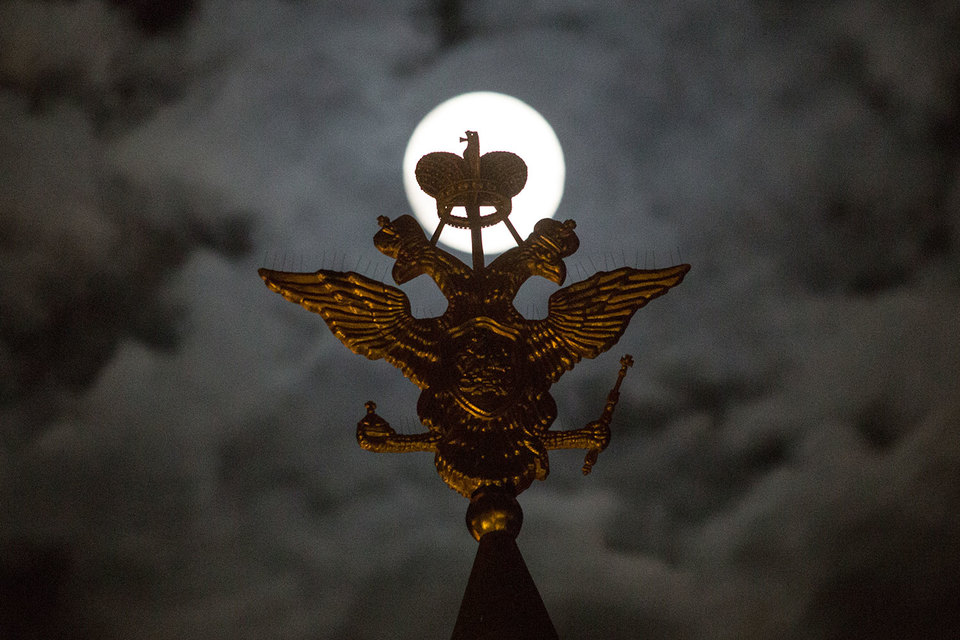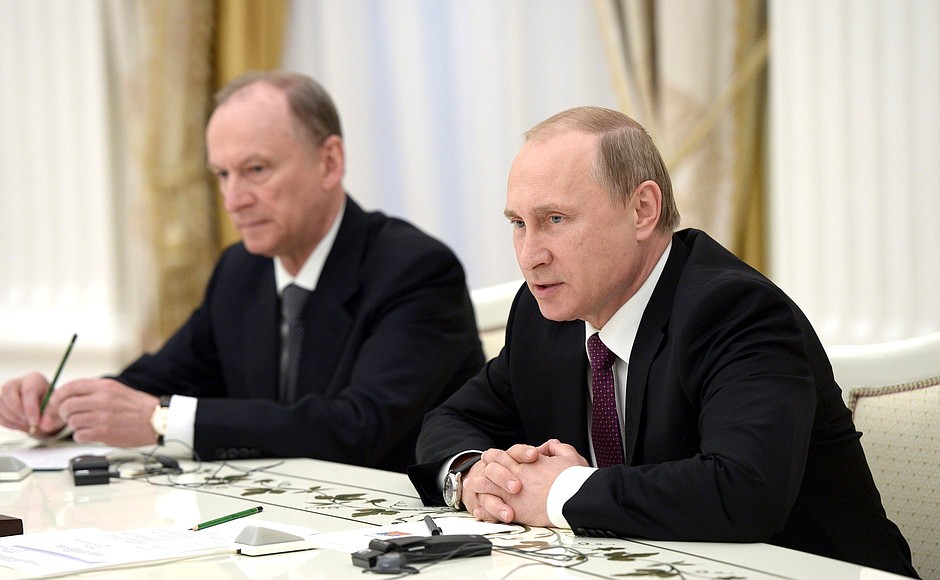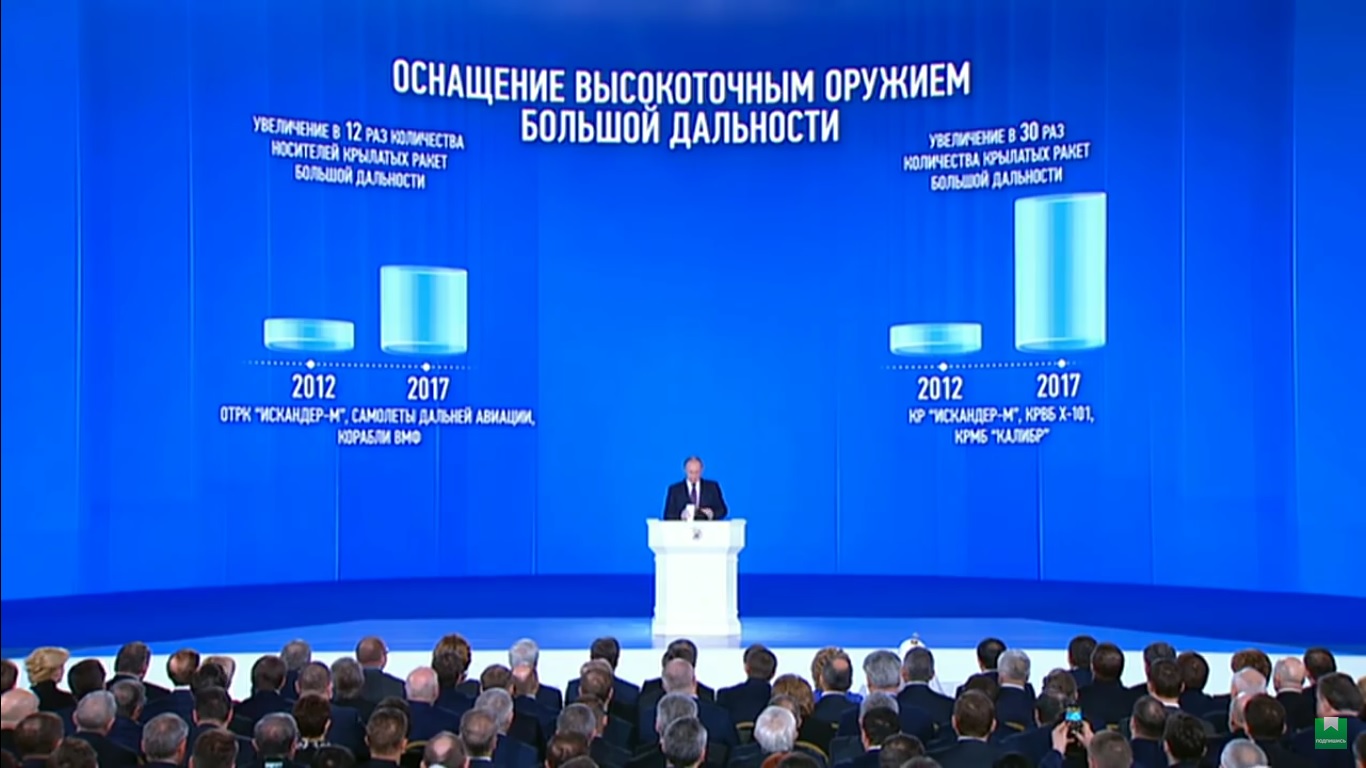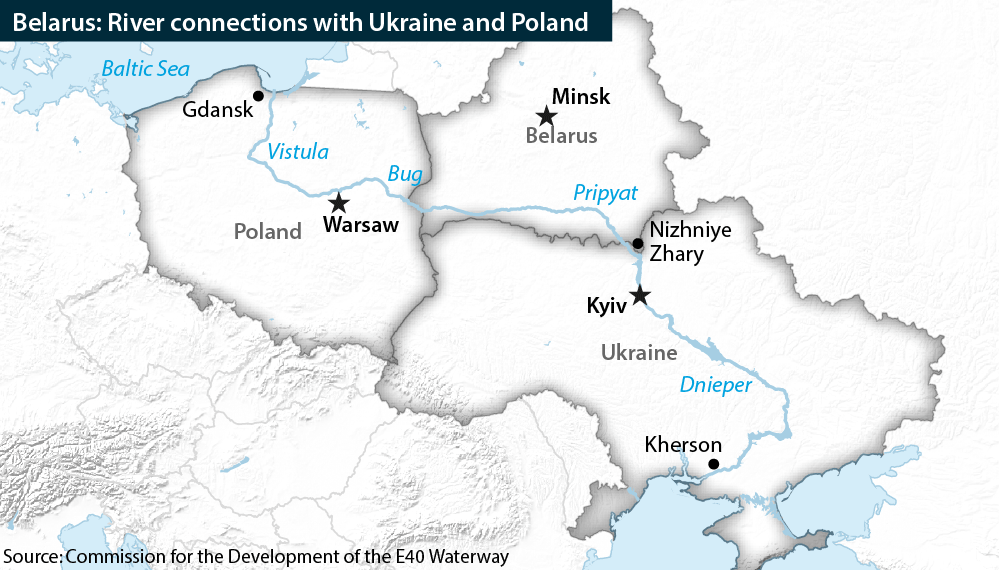By Paul A. Goble,
Institute of World Politics
Testimony Prepared for a Hearing on US Policy toward the Baltic States,
US House of Representatives Committee on Foreign Affairs’
Sub-Committee on Europe, Eurasia and Emerging Threats
March 22, 2017
It is an ancient observation that old generals always prepare to fight the last war over again, an attitude that ensures that they either dismiss real threats because they aren’t the ones they expected or fail to prepare to combat new threats in an effective way and thus suffer far larger losses than would have been the case had they focused on current realities than past memories.
That is currently a serious risk that the United States and its Baltic allies run in coping with the threat posed by Vladimir Putin. Because there is little chance that Moscow will send its tanks and planes into Estonia, Latvia and Lithuania, all of whom are members of NATO, many are inclined to conclude that there is no Russian threat there at all and that those in the Baltic countries, Europe and the United States who say otherwise are being alarmist.
But in fact, Putin poses a far greater threat to the Baltic countries and to the West more generally not only because of the goals that he has clearly articulated over the last decade but also because of the means he has adopted to promote them, means that unfortunately neither NATO nor many NATO member countries are focusing on or developing the kind of policies that will effectively defend them against these threats.
Here, I would like to focus on three things: the nature of the Russian threat to the West, the reasons the Baltic countries have for particular concern about this threat, and the common interest the United States has in countering that threat, including three suggestions concerning what the Baltic countries and the United States should be doing together to ensure that Putin will not succeed in his approach in the Baltic region — and additionally to prevent him from taking actions elsewhere that would be likely to lead to a broader war.
The Dual Nature of the Russian Threat
There are two aspects to the current Russian threat to the West and both need to be kept in mind. On the one hand, there are the three bedrock principles of the international system that Vladimir Putin wants to tear up: the 1919 settlement that declared that the era of empires is over, the 1945 one that held that citizenship is more important than ethnicity in the organizing of political space, and the 1991 outcome which held that the demise of the USSR was something that could be reversed only with the most adverse consequences for the peoples of that region and the broader world.
And on the other, Putin’s approach at both the strategic and tactical level is that of an intelligence operative rather than a statesman. He has pursued a policy of subversion against his neighbors and other countries further afield, including propaganda, bribery and corruption, and support for those who favor chaos over those who favor any order opposed to him. The Kremlin leader and others call this a “hybrid” war, one that doesn’t look like a real one and that gives him plausible deniability in many cases. What is critical here is not that other governments have not on occasion used these same tactics but rather that Putin has made them central to his foreign policy and that none of the existing security arrangements in the world is adequate to opposing them.
Thus, NATO could stop Russian tanks that may never come; but it is not organized to deal with this strategy of subversion which is already too much in evidence in various countries, including our own. In many ways, what Putin has done recalls what others in a position of weakness always try to do: they select means that their opponents have not focused on trying to counter. Just as terrorism is the weapon of the weak primarily among non-state actors around the world, subversion is the weapon of the weak among states.
Why the Baltic Countries have Particular Reason for Concern
Estonia, Latvia and Lithuania have particular reasons for being concerned about both Putin’s political goals and his tactical approach. On the one hand, they are three small countries bordering an enormously large Russian Federation, whose existence and flourishing represents an obstacle to Putin’s achievement of at least two and possibly three of his goals. And on the other, their size and ethnic diversity, especially in Estonia and Latvia, open the way for Russian subversion via corruption, propaganda, and economic pressure. Indeed, as Moscow has recognized since 1991, making use of these tactics with regard to the Baltic countries is far more effective than any direct military threat that NATO and the West might counter.
It is difficult for Americans to remember three things about the Baltic countries: how really small they are, how much they have suffered under various periods of Russian rule, and how much they have depended on the United States, first and foremost for Washington’s non-recognition policy while they were under Soviet occupation but also for the support the US has given to them, far more than to any former Soviet republic, in the last 25 years since they recovered their independence.
For Putin, the connections of the Baltic countries with the West in general and the US in particular have a dual set of consequences. Clearly, these ties mean that the Kremlin leader is very much aware that any direct military attack on any or all of the three would lead to disaster for Russia in the first instance, even if some in Washington now are incautious enough to suggest otherwise. But these links between Estonia, Latvia and Lithuania and the US and the West also make them a tempting target for subversion. If Putin can undermine these countries and their remarkable progress both domestically and internationally, he will not only show all the former Soviet republics that they have little chance of success but that the West is a paper tiger even with regard to those it has committed itself to defend.
Hence, Putin has chosen the path of subversion. His government has corrupted the political and banking systems in these countries to an unprecedented degree. His propagandists have played up ethnic issues in all three countries but especially in Estonia and Latvia despite the success Tallinn and Riga have had in integrating the ethnic Russians there. And the constant refrain of Moscow propagandists that Estonia, Latvia and Lithuania are not “real states” but rather colonies of the West can only be troubling to them – even if there are NATO boots on the ground and NATO planes in the air over them.
How the US Can Promote New Ways to Help the Baltic Countries
I was an early advocate of including Estonia, Latvia and Lithuania in NATO and the European Union, and I believe that these memberships have been incredibly important for allowing these countries to develop as free and democratic ones and for preventing the rise of populist nationalist and anti-Russian forces that would feed on the fears of Russia that would be far larger if the three were not part of the West.
But having said that, I believe that there are many things we should be doing to promote Baltic security that have nothing to do with NATO or our own military. Let me suggest just three: First of all, we should encourage the three countries to complete the integration of the ethnic minorities in their countries as rapidly as possible so that Moscow will not be able to use that as a wedge issue to divide them.
Second, we should promote transparency of all economic and political activities in the three and especially work to promote Internet security on which the economies and polities of the three increasingly depend. Estonia, Latvia and Lithuania have taken giant steps in this direction but they need our help. Ensuring transparency of economic and political activity and guaranteeing computer security in Tallinn, Riga and Vilnius are almost certainly more important than putting more troops on the ground.
And third, we should promote in every possible way conversations between the Estonian, Latvian and Lithuanian government and society with their opposite numbers in Russia. That is doubly important: These countries can’t afford to be in a hostile relationship with Moscow forever – and eventually even Putin will pass from the scene – especially given the current unwillingness of the West to stand against the Kremlin leader’s aggressiveness. And by seeking such conversations, together with their Scandinavian and East European partners, they can at least highlight where the problems in relations lie and perhaps over time even promote positive changes in the dictatorship that is Russia today.
******************************
At present, the US is divided between those who think that Putin is not a threat to us and those who believe he is an existential one. Those who believe that he represents an immediate threat to the United States are almost certainly wrong given the weaknesses of his country, but those who argue that he is not a threat at all forget that aggressive regimes like his, even if they are weak, may conclude that they can press their case if there is no willingness to combat them at the early stages of their resurgence.
The West did not respond forcefully to the Russian invasion of Georgia in 2008, despite that war being the direct result of the policies that Vladimir Putin articulated at the Munich Security Conference a year earlier. And it has not found a way to counter Putin’s aggression in Ukraine, which began in 2014 with the Anschluss of Crimea and which continues to this day not only in the Russian-occupied Donbas but throughout Ukraine as a whole.
Putin clearly thinks he is on a winning streak, and dictators who draw that conclusion often plunge the world into a broader war if they are not countered in time. The experience of Britain in the 1930s is particularly instructive in this regard. In 1938, Prime Minister Nevil Chamberlain justified his policy of “positive appeasement” with Hitler by saying that “small countries far away about which we know little” should not expect the great powers to “come to their rescue anytime they get in trouble” with larger neighbors.
That policy and that attitude, of course, led Hitler to assume that he could ignore British and French commitments to Poland; and that error in judgment by the Nazi leader thus led to the outbreak of World War II in Europe.
It is not too much to say now that those who oppose supporting Estonia, Latvia and Lithuania against Russian threats are engaged in the same act of self-delusion as the pre-war British prime minister. We must recognize that the defense of the three Baltic countries like the defense of Czechoslovakia in 1938 is not just about three “small countries” far away and is not just about military alliances alone. Instead, we must recognize that countering the new threats that Putin’s Russia poses is the proper defense of the entire international system against its destruction, an outcome that is just as much in the interests of the United States as it is of Estonia, Latvia and Lithuania.





